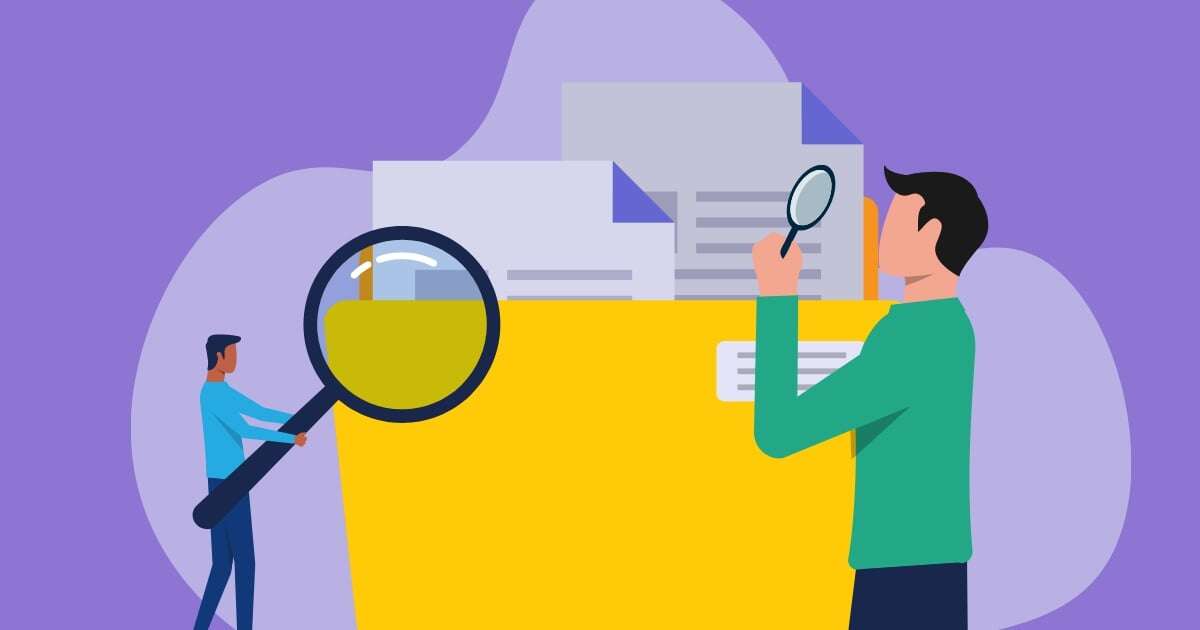Due diligence may seem like an all-or-nothing proposition in which only the buyer benefits, while the third-party vendor must slog through the process of answering detailed questionnaires and collecting and providing documentation. However, vendors and service providers need to recognize that due diligence is just as important for them as it is for their customers. It may be your customer's requirement for you to participate in their due diligence processes, but it’s also your opportunity to identify your organization's value and service capabilities while promoting trust that can lead to a stronger working relationship.
Why Do Your Customers Need to Perform Due Diligence?
When it comes down to it, your customers are looking for vendors who will be able to provide them with the products or services needed to execute or improve their operations. They need to know whether your organization can perform effectively and without unnecessary risks that may negatively impact their company or its customers.
Consider whether you would buy a product without reading reviews. What if it doesn't work in the way it promises? What if it doesn't serve your needs at all? What if the product or service makes the situation worse? Ideally, we all want to make the best decisions we can. When selecting vendors, due diligence is the systematic process that facilitates good decisions.
Here are several of the reasons why due diligence is important to your customers:
- Due diligence helps defend their organization from vendor risks. Relationships with third-party vendors can introduce many risks, including reputational, operational, financial, and cybersecurity risks. Due diligence is essential for identifying and mitigating these risks.
- Your customers are looking to protect their customers. If customer or consumer data is involved, there is a risk that this sensitive information could be compromised during a data breach. Vendors with substandard security add additional and unnecessary risks for your customers. Due diligence is the process that confirms that vendors have the right controls in place to manage the known risks.
- It’s a regulatory requirement. If your customers are in a regulated industry, they’re expected to perform initial and ongoing due diligence per their regulator's guidance.
- Your customer needs to know if your services will fit their needs. The initial due diligence is the best practice for checking for hidden risks and determining whether you are the correct vendor to deliver the product or service.
Due diligence has many benefits for both you and your potential customer. The process of due diligence plays an important role in strengthening a relationship and identifying any potential risks.
Why Is Document Collection Important?
You'll be asked to submit several documents to your customer's vendor management team for use during due diligence. The documents required by your customer depend on the services you plan to provide as well as the level of risk involved in the relationship. If your organization is categorized as a high-risk or critical vendor, your customer will request more extensive documentation.
You can expect your customers to request information such as your business's legal name and location, corporate contact information, tax ID, and biographies of key managers and owners for all vendor relationships. The information you provide ensures your business is legitimate, is registered with the IRS, and provides details about where and who will conduct the work.
Sometimes, a customer may ask you to complete a vendor assessment. Customers use this assessment to determine the level of risk and to assess your products or services. In this way, your customer can gauge what to expect from the relationship. Documentation is crucial for establishing your business and helping your customers complete their due diligence. But what are the benefits for your organization, and why should you provide documentation to your clients?

Why Should You – Their Vendor – Care About Due Diligence?
Your team may feel overwhelmed by the task of completing assessments and providing documentation, especially if you’re doing this for multiple customers. Still, due diligence is an important component of building a healthy relationship using the principle of "trust but verify." It also allows you to see your organization from your customer's perspective. The due diligence process allows your organization to self-assess and improve.
Here are a few benefits of performing due diligence activities for your customers:
- Objectively assess your products' or services’ value. The due diligence process allows you to determine if your products or services are of good value, meaning their benefits outweigh their risks.
- Understand your organization's financial health. Reviewing financial documents is an effective way to assess your organization's financial status, just as your customers will do before investing in a relationship.
- Build a foundation of good faith and trust. When vendors refuse to provide key documents and information, customers will not be interested in working with them. It is important to be proactive and prepare the necessary documents for your business to instill confidence in your organization.
- Avoid hidden risks and surprises. In the same way that due diligence allows your customers to identify any vulnerabilities, self-assessments allow you to identify the same risks. The key to avoiding surprises down the line is to address concerns before they become major obstacles to your business relationships.
- Be prepared for future customer due diligence requests. Each time your organization participates in customer due diligence, there are opportunities to better prepare for the next customer request. You may identify better ways of collecting and storing the right documentation so that it’s easy to access. You could also keep a record of answered questions in previous due diligence questionnaires. Streamlining your processes can make due diligence less grueling.
Due diligence is a crucial part of the process for both parties and doesn’t end after the initial due diligence stage. For both parties to understand the risks and expectations of the relationship, ongoing due diligence is essential throughout the relationship. Providing documentation can sometimes seem tedious, but it's essential to establishing trust and building a stronger business relationship.





.gif?width=1920&name=Sample-Graphic-Animation%20(1).gif)




